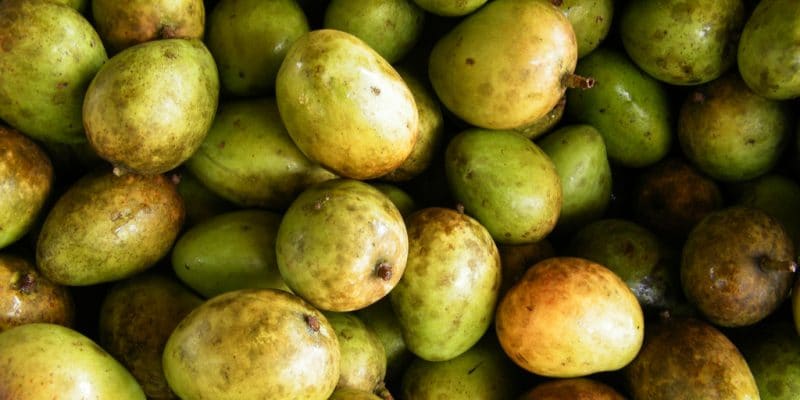Dieudonné Ouédrogo is a student researcher at Joseph Kizerbo University. From the depths of his laboratory, he has developed a technique that makes it possible to produce biogas from mango waste. A discovery that makes the young doctoral student proud in the exact sciences, option renewable energies.
Biogas from mangoes is the winning formula that Dieudonné Ouédraogo, a young doctoral student at the Joseh Ki-Zerbo University in Burkina Faso, has recently devised. To obtain this result, Dieudonné uses anaerobic digestion. In practice, it collects mango waste (especially peels), and places it in anaerobic digesters (thus deprived of oxygen inside). This mechanism facilitates the production of microorganisms that will help transform organic waste into biogas. The process takes an average of 20 days. The researcher points out that for each kilogram of mangoes, his process yields 0.061 m³ of biogas every 24 hours.
Every year, 300,000 tons of mangoes are produced in Burkina Faso. The residues of this fruit are very often found in nature, and cause sanitation problems, as well as pollution during their decomposition. Whereas, as Dieudonné Ouédraogo explains, “mango processing units will no longer have to buy butane gas, since they have mango waste available free of charge and this waste will allow them to produce biogas in the quantities they need to operate their industrial unit”. A technique that is sustainable in more than one way, because it contributes to the reduction of greenhouse gases, and the digester can produce biogas for at least 20 years if it is well maintained, says the scientist.
In recent years in Burkina Faso, a series of techniques have been developed to transform waste into energy. Since 2009, the biodigester has been introduced in the country, thanks to the support of the National Biodigester Programme of Burkina Faso (PNB-BF). This tool consists of a sealed tank into which the organic matter of animals is poured, to which water is added to obtain methane. This 4m3 equipment supplied with 20 kg to 40 kg of droppings per day can produce between 800 and 1600 litres of gas.
Luchelle Feukeng







